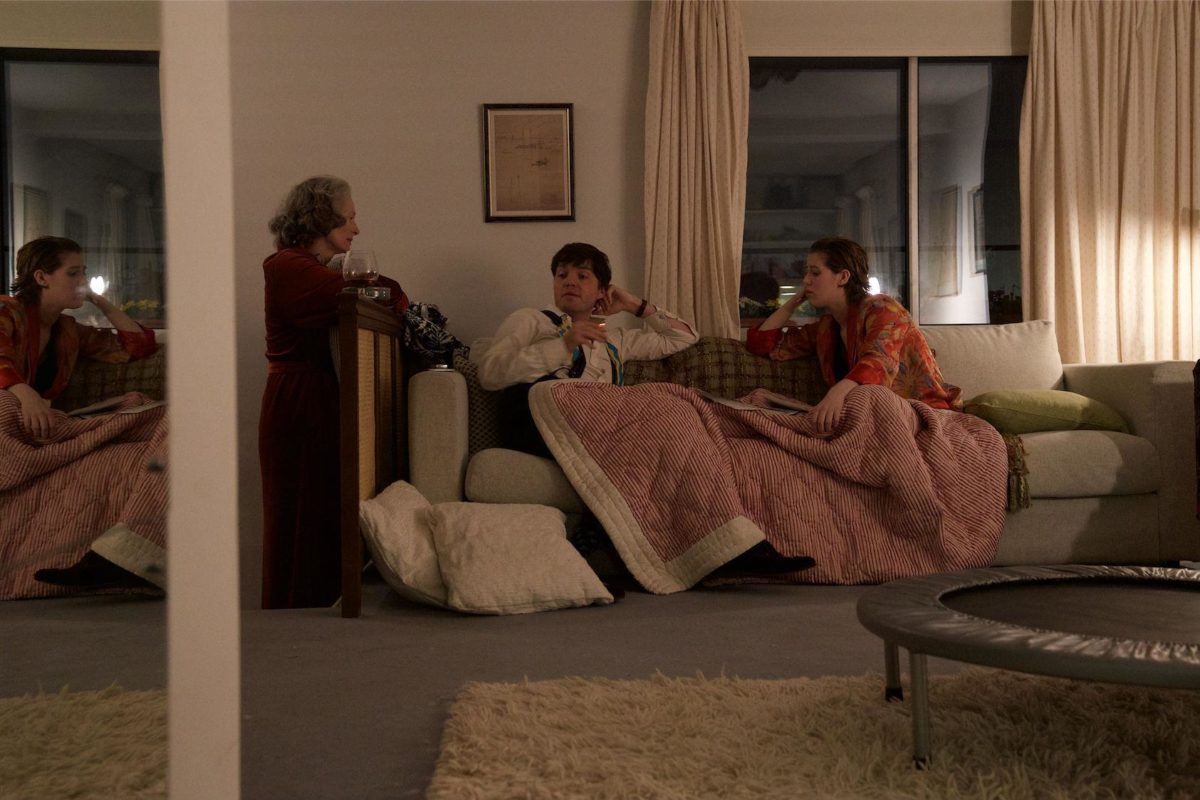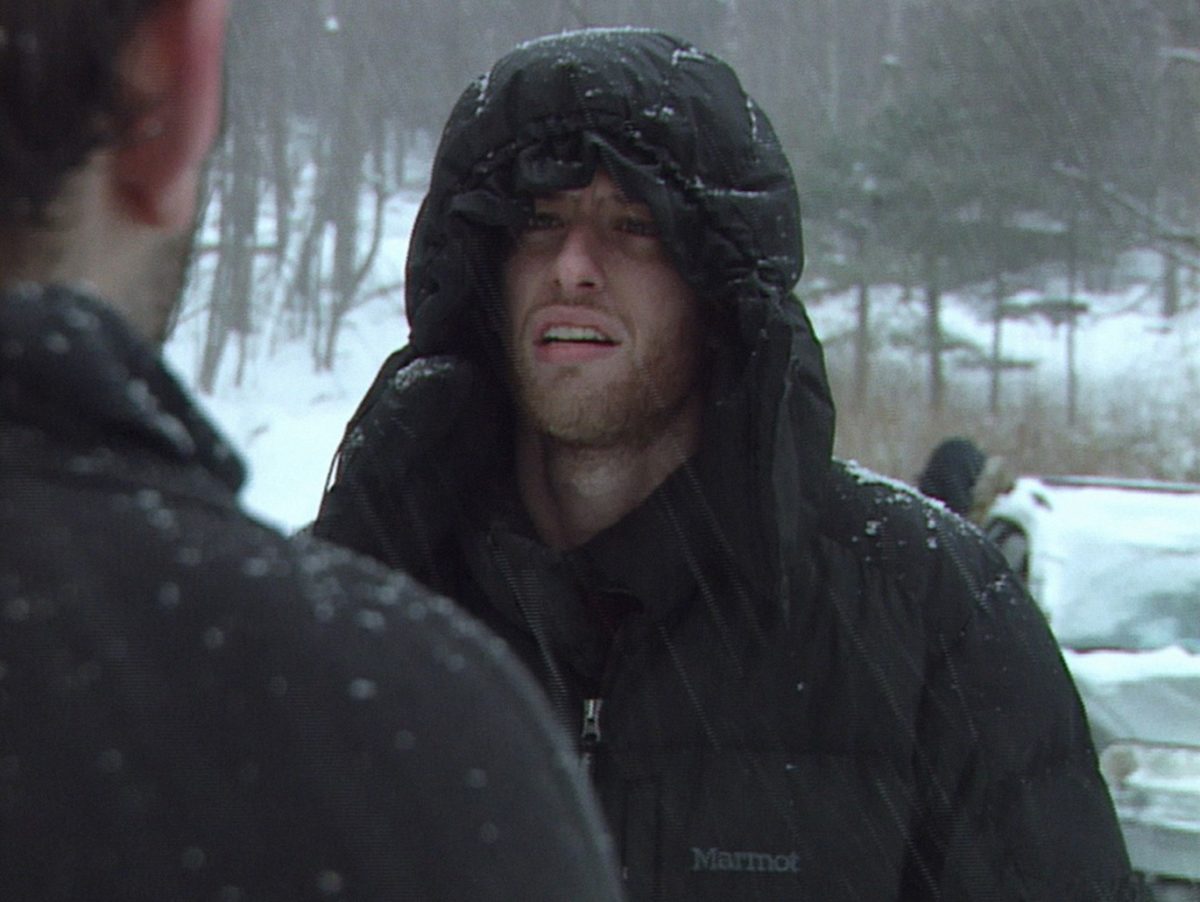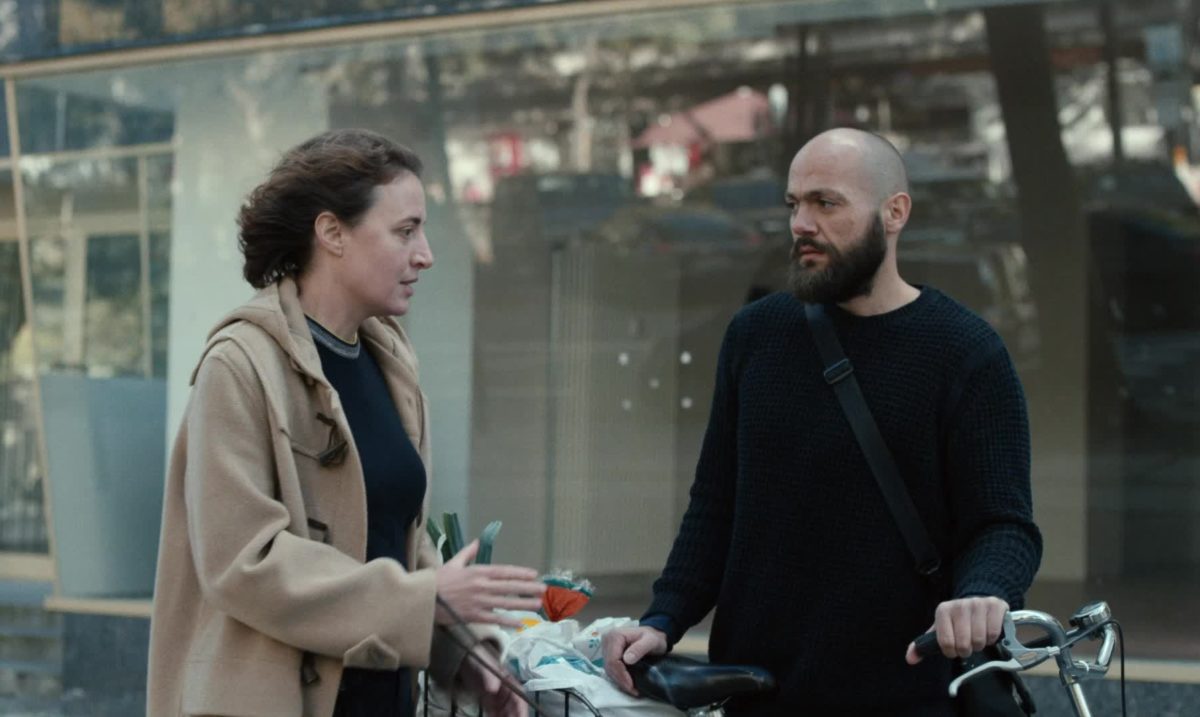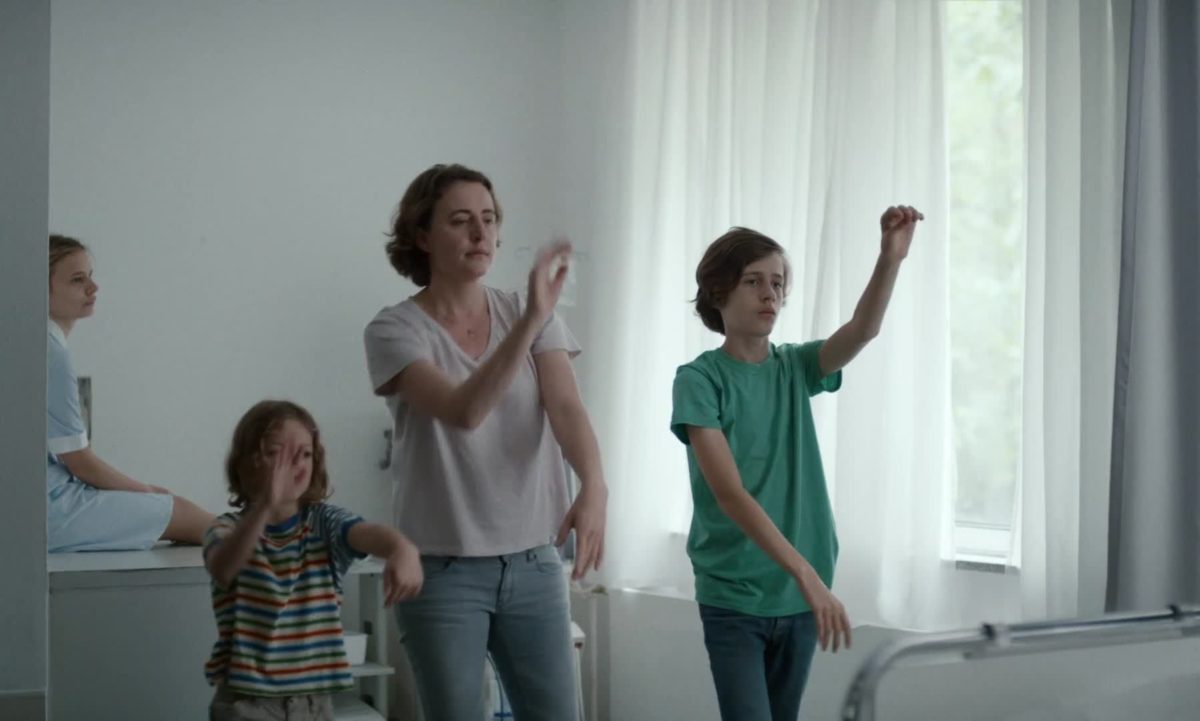Why make a film? As with other art forms, it is often accepted (all too easily) that films exist in order to reflect reality. Yes, documentary films aim to capture some specific aspect of reality’s happenings. Yes, dead time and long takes sometimes offer a look at life as it is lived. Of course no film can present life absolutely, and subjective experience differs between every individual. No film can ever hope to procure the whole story, namely because there is no such thing. So why make a film? I cannot pretend to know the direct answer to such a question for every case. Yet contemplating this question, three films at this year’s Berlinale caught my attention. The Souvenir (Joanna Hogg, 2019), The Plagiarists (Peter Parlow, 2019) and Ich war zuhause, aber (Angela Schanelec, 2019) all struggle with their own existence while supposedly teaching us how they are constructed as they unfold. Each aims to explain its own existence through argument, self-reflexive example and by examining its position in relation to its creator’s reality.

We’ve heard it all before: you have to trust yourself, it’s about intuition, filmmaking is a natural urge and knowing how to make films just happens. It’s a mythos which Joanna Hogg’s The Souvenir bites into, and hard. While the photography and acting often overcome a hokey and cliché-ridden script, a scene of film student banter in a van sticks out like a sour strum, snippets of which include “after fucking nouvelle vague…” and “it’s style over substance.” Particularly guilty of cliché is filmmaker-in-training Julie’s (portrayed by Honor Swinton Byrne, daughter of Tilda) romantic interest, Anthony (Tom Burke). An ex-military junkie who just can’t seem to straighten out his life, we watch scene after scene of silent suffering and manipulation. Julie just can’t seem to leave him. An early chat between our film school hero and Anthony asks direct questions like “What’s real?” in the context of her wanting to make a semi-autobiographical film. That is to say, we are watching a semi-autobiographical account of a young Ms. Hogg wanting to make a semi-autobiographical film. Anthony likes Powell and Pressburger, who he credits with being “very truthful without necessarily being real.” He goes on to explain that, “when we go see a film we want to know the inner machinations” of what’s being considered “inside these soft machines.”
Hogg’s stand-in defends her fictionalized people plucked from reality with, “Those people are real, they do exist, but I’m making new ones.” There is not a lot of mileage left in a statement like ‘art is my therapy,’ or claiming film as a form of personal expression, and The Souvenir drives them to the bitter end. Richard Ayode cameos as a free, hip and artsy filmmaker, who alerts us over dinner that “telling someone how to make a film is like telling them how to breathe.” While it is funny, it undermines a lot of the film’s own explicit sentiments, which often include blurting things outright. That said, there is a great shot of a few bushes against vast sky, shown three times, a shot which is actually about learning how to breathe.
The Souvenir’s cast spends most of their screen time hanging out, vaguely working on projects. While budgetary issues are briefly touched upon, Julie needs only visit Mommy Swinton anytime she runs out of cash (in turn cleverly maneuvered out of her pockets by Anthony). She continues to promise to pay it back, though the books are never balanced on-screen. In some ways the film plays as a vanity project; making an autobiographical fiction in this case is the most ‘boring’ way to do it, but it does look good, and in a few stand-out instances holds a shot longer than conventional, to great effect. It is in these silent moments of breathing that The Souvenir gets it right. The rest is mostly familiar filler.

On the other end of the aesthetic spectrum rests The Plagiarists, contently. We are thrown in medias res into wintry woods, where Allison (Emily Davis) and Tyler’s (Eamon Monaghan) car won’t start. An African American fellow who goes by ‘Clip’ (Michael ‘Clip’ Payne, of the Parliament-Funkadelic collective) appears from nowhere and helps them push their car down the hill to his house. In fact, it’s not so much that he appears as he is summoned by the cut to a shot of him. From this opening scene, The Plagiarists slowly signals its preoccupations with metaphysical reality: things can work however the film decides they should, because it is a fiction. It is a fiction that works within a reflected, partly stolen version of reality as we know it, but a fiction nonetheless.
The suspicious couple stays the night at Clip’s house, seeming incoherencies slowly piling up until a climax via monologue, in which Clip reminisces poetically about his childhood. The monologue is later revealed to have been plagiarized from a book in the My Struggle cycle, by Karl Ove Knausgård. What’s interesting about this choice of material is that My Struggle ‘steals’ from Knausgård’s own life, in a multi-volume memoir. Similarly, there is an autobiographical element on the part of screenwriters James N. Kienitz Wilkins and Robin Schavoir at play here, as Allison and Tyler aspire to be a novelist and filmmaker, respectively. In an interview with Filmmaker Magazine, Kienitz commented on the film’s relationship to reality, “This kind of interrelation with real life—it’s not symbolic, it’s actual, or something.” Dogme 95 is mentioned as a touchstone explanation for The Plagiarists’ aesthetic choice to shoot on an old video camera. In fact, Tyler finds the same model of camera that The Plagiarists was recorded on in Clip’s closet. As a radio talk show playing in the background of a conversation analyzed Lynne Ramsay’s You Were Never Really Here I started wondering, “Am I really here? Is this film really happening?” The wondering continued when Evian appeared in a product placement as purposeful punchline callback to a commercial Tyler was supposed to shoot.
Twice we’re subjected to the same exploratory camcorder footage set to synth pads, in each instance with a different stolen monologue on top; Clip’s Struggle to close the first half of the film, and a speech leading up to choice cuts from the Guardian article “Are books better than films?” to close the second half of the film. What feels like a rush of biting satire is dampened when the end credits reveal the text it steals from, a children’s column piece attributed to ‘TheBookAddictedGirl.’ What felt sharp now just comes across as an unwarranted jab at an enthusiastic young reader writing about Percy Jackson and The Hunger Games. The Plagiarists’ filmmaking lesson goes about the same methods of borrowing from reality so boringly talked about in The Souvenir by lifting directly (and implicitly accusing itself of theft) without bogging itself down with explanations of what’s being done or why, a far more lucid and audience-rewarding approach.

In the latest from Angela Schanelec, Ich war zuhause, aber (I was at home, but…) we learn in a sudden revelation halfway through the film that our protagonist Astrid (Maren Eggert) lost her husband two years ago. We see her crying and clinging to his grave as M. Ward covers “Let’s Dance” on the soundtrack (the only song in a soundtrack intently focused on the sounds of everyday rhythm). In a tender flashback, we see her dance with her children in front of her dying husband’s hospital bed.
When Astrid runs into a filmmaker (Serbian director Dane Komljen) applying for junior professorship at her school just outside of the local Lidl supermarket, the two begin to discuss filmmaking in a long-take dolly tracking shot. Astrid critiques his work, and calls actors master liars. She objects to his placement of actors next to people who were actually sick. “The truth only reveals itself when you are forced to lose control.” She starts to get worked up about being right, exposing the ‘truth’ in arguments of art which are highly subjective. In retort to his explanation of ideas behind his work and how it felt while shooting, she asserts that “it’s [his] personal truth.” And that since it came from ideas rather than concepts lived, “then it’s only a theory, it’s not from experience.”
Ich war zuhause, aber begins with a brief bout of insanely good panning, following animal movement, then animal stillness in a prologue which brings to mind the Brothers Grimm tale, ‘The Town Musicians of Bremen’, though it only seems to have two of the four animals in common. We return to the animals in an epilogue. The donkey looks at us. It’s over. The blood of Bresson runs thick through this Schanelec, from ellipses in narrative clarity, to treating actors as models (though not exclusively), to the specificity of hands untying shoes in a reverent close-up near film’s beginning. When asked at the press conference about Bresson’s influence on the film, “Bresson, ja, klar” (“Bresson, yes, of course”) was all that Schanelec offered. The two child actors present recounted that Angela told them to just play intuitively rather than play at playing or deliberately acting, which recalls Bresson’s Notes on the Cinematograph. On borrowing her title, Schanelec called Ozu’s silent classic I Was Born, but… (1932) “the prettiest title that I know,” elaborating that “everything it says about family is still true.” But to linger too long on the film’s homage does a disservice to its strengths.
One more gem from the press conference: “Why make this film?” Schanelec was asked. She reflected for a moment before doing away with the sentimentality and mythos to present her straightforward logic, “Ich wollte es einfach sehen.” (“I just wanted to see it.”)
